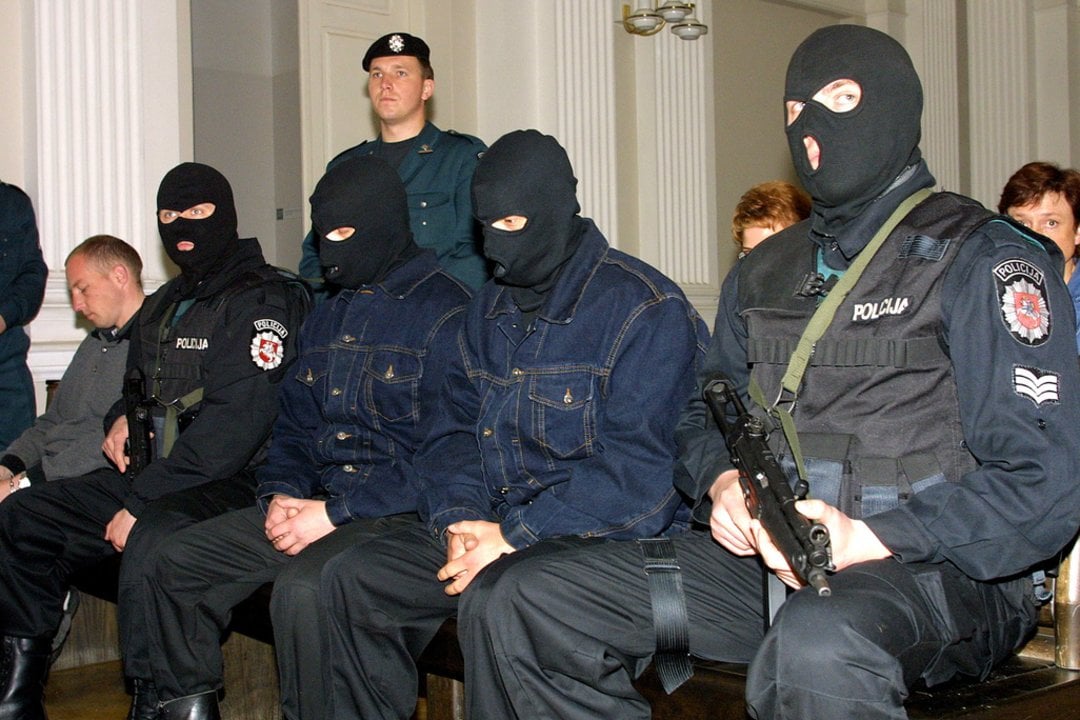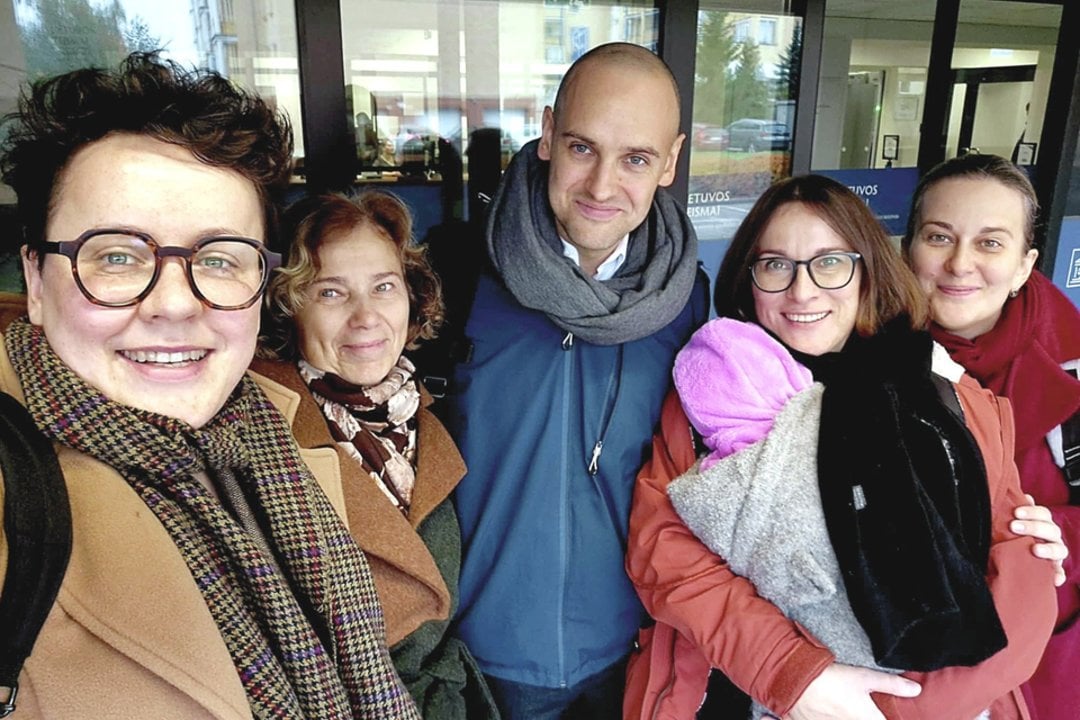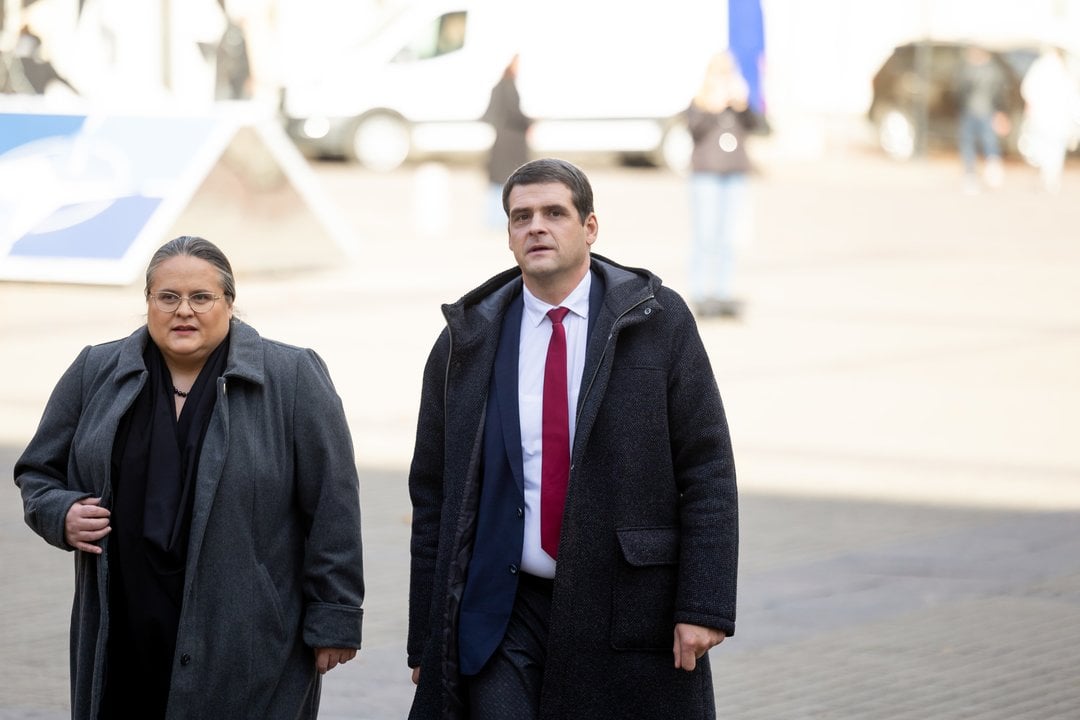Political analysts often point to the disagreement between the Homeland Union-Lithuanian Christian Democrats (TS-LKD) and G. Nausėda as the beginning of the conflicts between the two parties, namely over the dispute who should represent our country at the EVT - the President or the Prime Minister.
The ruling party is now saying that during the spring session, it will seek to clarify the procedure for representation on the Council. However, G. Nausėda has repeatedly objected to this and attended the meetings in Brussels himself.
In the programme of Žinių Radijas, Aktualusis Interviu (The Current Interview), the elder of the TS-LKD group in the Seimas, Radvilė Morkūnaitė-Mikulėnienė, and a member of the Social Democratic group in the Seimas, Gintautas Paluckas, discussed why it was necessary to talk about the EVT again.
Offers to wait quietly
Speaking about the reasons why the conservatives decided to revive the issue that had arisen at the beginning of the term, R. Morkūnaitė-Mikulėnienė admitted that it was partly related to the fact that President G. Nausėda did not invite the Deputy Minister of Foreign Affairs Simonas Šatūnas to the last meeting of the EVT.
However, according to the elders of the conservative group in the Seimas, there are more reasons than those identified several times.
"There is some connection with this action. (...) Generally speaking, however, all countries, except France, Romania, Cyprus and Lithuania, send the Heads of the executive branch - the Government - to the Council.
These people also have political affiliations; as you know, in our country, the President does not belong to any party or political family in Europe, but the more significant argument is that the executive branch is responsible for implementing decisions. The executive branch's duty, in my opinion, is to take part in decisions and to take those decisions, which are then brought back to Lithuania," explained R. Morkūnaitė-Mikulėnienė.
According to the politician, the Poles and the Finns have been in such an ambiguous situation as Lithuania, but they have managed to resolve the ambiguity by law.
According to the conservatives, a solution could also be found whereby the President and the prime minister would go to the EVT alternately.
"Perhaps there could be a way that if foreign policy issues are discussed, the President could represent, but if it is current issues of the European Union (EU) - the budget, agricultural policy, and all the other problems - that is not part of foreign policy - it is internal policy, and EU policy is not just foreign policy.
If the will is there to adopt the law, it would come into force for the following terms. We are not talking about this term, but I think it would be healthy for the political field in Lithuania so that there would be clarity in the constitutional framework as to who is responsible for what," said R. Morkūnaitė-Mikulėnienė.
For his part, Social Democrat G. Paluckas questioned whether the issue of representation in the EVT had been raised at the right time, saying that there were more important things to do than clarifying relations between the President and the ruling party.
"We (Social Democrats) have not adopted an opinion on this issue - there are various considerations of some individual members of our party, such as Vytenis Andriukaitis, but we see today's situation as an inevitable continuation of the conflict between fellow conservatives and the President, because the causal link between the deteriorating relations and the issue of representation on the Council of Ministers, which is back on the agenda, is evident to everyone.
For this reason alone, we would suggest not to press ahead with events or draft laws but wait calmly to deal with other essential things, which are certainly not lacking in our agendas, and not to give the impression to the public that we are only capable of organising conflicts and pressuring each other through the legislative process," explained G. Paluckas.
The Social Democrat argued that many different relationships between the branches of Government and institutions are established by customary law or a particular tradition. According to him, breaking that tradition only makes sense if it will bring significant added value.
According to Mr Paluckas, the role of the Government in various European issues is also vital because there is a Council of Ministers and procedures for preparing directive regulations, where both ministers and deputy ministers are involved at multiple levels.
"The President never represents his own opinion but represents what has been prepared by the Government and approved by the Seimas. This has been the case so far, and the model does work.
And to try to throw it all away now, amid tension and conflict, and to establish a new order amid elections, I think we would be doing it unnecessarily, and we would be burning both time and emotions when they are needed for other more critical issues," the MEP believes.
Calls for the issue to be finally resolved
For her part, R. Morkūnaitė-Mikulėnienė said that the end of the term of office is the right time to resolve such issues. She also sees another big gap, recalling the incident when G. Nausėda did not invite the Deputy Minister of Foreign Affairs to the EVT.
"I would like to return to the tradition that my colleague Gintautas is discussing. (...) When we talk about the preparation of positions, Gintautas is right when he says that it is the Government that prepares the positions; in the Seimas, we approve them, we add to them, or we have the right not to approve them, and then they come back to us. The reports on the results of the meetings come from the representatives of the Government.
I want to emphasise that we have always taken a constructive approach to this issue, by the established tradition of Dalia Grybauskaite. Mr Nausėda has taken over the tradition and is carrying out the representation of Lithuania. Still, the Government is preparing the positions, and the participation of Government representatives in not only the formal meetings but also in the informal ones is also essential.
We in the Seimas are given reports by the Government after such meetings. So how can we now talk about reports if the Government representatives are not even invited to attend these meetings?
There are certain limits. (...) This is not a good step for the Presidency, and it would undoubtedly be more apparent if we regulated this by law. In the future, there would be more clarity on this issue," the conservative said.
G. Paluckas continued his opinion, stressing there is no need to tinker with what already works well.
"I think that we cannot draw profound conclusions from this latest episode, which is not very rational anymore, that the President did not invite the new Vice-Minister of Foreign Affairs to the EVT because it may be related to the personality of the Vice-Minister himself - we recall that he was a name mentioned in the State party conspiracy scandals.
Regarding regulation, changing a tradition is only meaningful if it adds some value. Now, people are simply saying: look, you are having an affair, you want revenge on each other, and that is why you are proposing a change in representation.
I would not be inclined to change the procedure because I have yet to see any severe arguments about how it would improve the representation of Lithuanian interests. I have never heard of the President following his fairy tales or representing his positions, as opposed to what was prepared by the Government.
If it works, as they say, there is no need to take and fix it", the Social Democrat believes.




